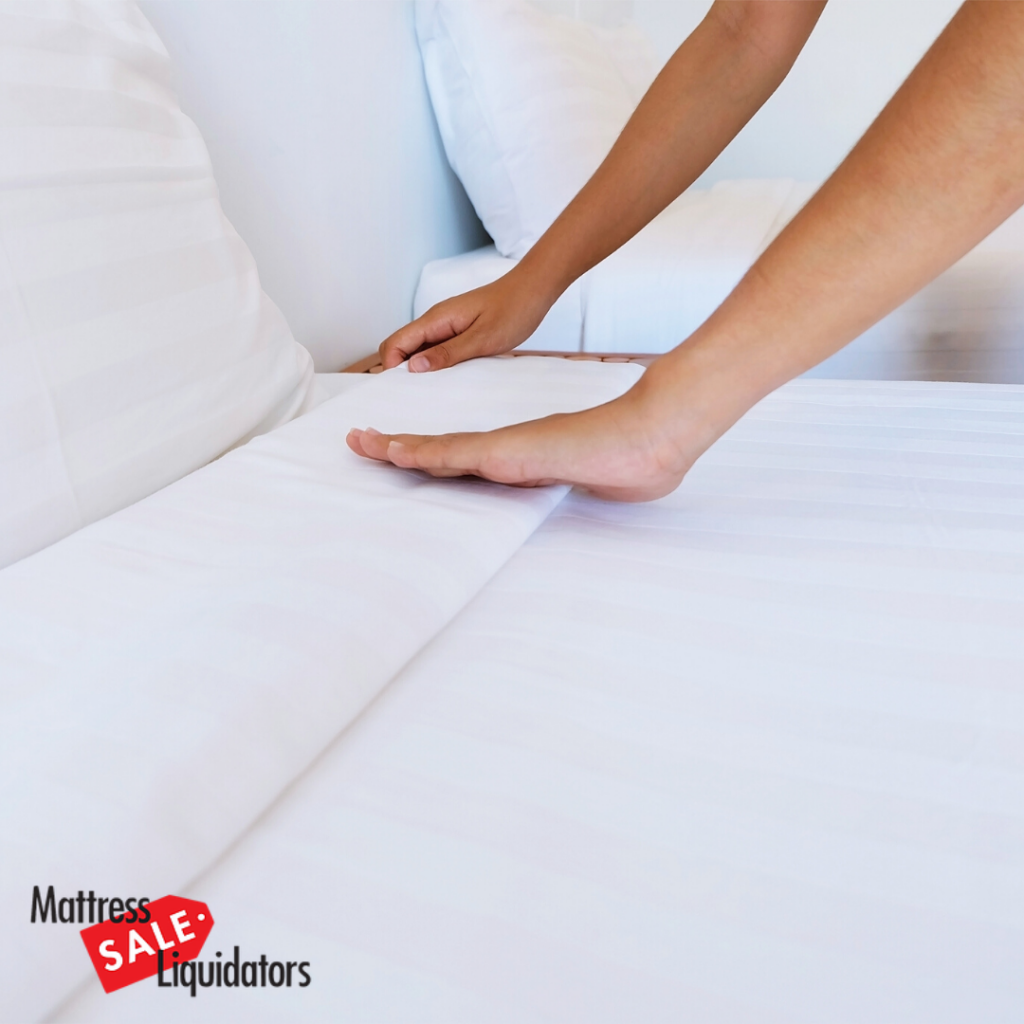Sad, but true: your bed is always full of dust, sweat, funky smell, and dust mites – and other things you don’t even realize!
If it has been a long time since you washed the sheets (or, to be honest, you don’t even remember changing the sheets last time), read on for the magic numbers that experts share! Research shows that on average, Americans wash their sheets every 24 days. Interestingly, they only consider bedding gross after a month.

We all are often nose-blind to our own body odors, therefore it is less likely that we notice bad smells in our sheets. However, whether they have an odor or not, unwashed sheets can cause some health issues over time, such as skin irritation, redness, acne, and allergic reactions to dust mites.
Here is a handy guide for you on how often you need to wash your bed linen, why it is best to follow a perfect schedule, and what to do if you are tired of doing the laundry.
How often should you wash the sheets?
Generally, you should wash your bed linen every 1-2 weeks. If you or your sleeping partner are sweating, sleeping naked, or sharing a bed with your pet, you are dirtying up your bed more than you would have if you were sleeping alone.
If this sounds relatable, plan your sheet washing schedule once a week. Note: If your skin is prone to acne, you may want to throw pillowcases more often. Think about washing them twice a week– as advised by the American Academy of Dermatology (AAD).
The same stands true if you tend to fall asleep without removing your makeup. Experts advise you to lather heavy on cleansers and moisturizers before you go to bed.
What if you don’t wash your sheets often?
The ick factor is – we lose about 200 million dead skin cells per hour (That’s almost more than 1.4 billion per night, it doubles if you sleep with your partner). Dust mites are tiny, eight-legged mites that feast on the uncountable dead skin cells in your bedding. Gross, huh?!
Although these creatures do not cause any life-threatening disease, according to the American Asthma and Allergy Foundation (AAFA), their body parts (and poop) are one of the most common causes of allergies. That’s why you experience runny nose, sneezing, even wheezing or having difficulty breathing if you do not clean the sheets regularly.
In addition to the annoying dust mites, your bed also absorbs a lot of things you take or wear on you all day, including dirt, cosmetics, lotions, and environmental pollutants. Your sheets will be pretty nasty when these factors get mixed up with your sweat, body oil, and body fluid, and pet dander.
Since all of these substances come into close contact with your skin when you fall asleep, a variety of problems can occur-from skin irritation to acne. In the worst cases, you could even get incurable infections. So beware!
Your skin will be prone to some serious risks if it is dry, sensitive, has eczema, or rosacea. Even worse? Microbes such as bacteria and fungi tend to thrive in humid environments, including dirty pillowcases.
It’s not just your sheets but your mattress also gets the dirt and microbes. It is good to replace your mattress with a new one from the nearest mattress stores in Orange County. You will find a mix of variety and affordability.
What if you don’t have time to wash your bed every week?
Life is busy – it’s totally understandable! If your washing machine and dryer are a drive away, it will be hard to follow the sheet washing schedule that you have planned earlier. The simple solution is, have three sets of sheets and cycle them every one to two weeks.
Follow specific instructions on the care label while washing your sheets. Generally, it is best to wash the polyester blend in warm water, but if you have a cotton sheet then you can use hot water. If possible, The Asthma and Allergy Foundation of America(AAFA) says to choose the hottest wash temperature setting to kill dust mites. And, of course, remember to separate the sheets by color.
Also, if your sheets are dirty, you may want to drain the entire pot of detergent, but don’t overdo it. Using more detergent than required may cause detergent molecules to get trapped in your sheets, which, unfortunately, may further irritate your skin.
The reward after all this: Slipping into a neat and tidy bedsheet and a comfy mattress that you have recently bought from one of the Orange County mattress stores for a luxurious and quiet sleep! So what’s your schedule?
